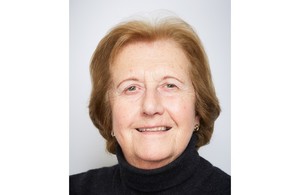Thousands of young people in the most disadvantaged parts of England are to benefit from a new focus on making up lost learning time due to the pandemic, as well as levelling up their education outcomes and tackling barriers to skills and employment.
Michelle Donelan, Minister for the Opportunity Areas, today announced how the expanded programme will address the impact of coronavirus, building on the successes across each of the 12 areas by ‘twinning’ them with places facing similar challenges to help unleash the potential among young people in other parts of the country.
The fourth year of the flagship programme, announced last year, will raise the bar for young people boosting social mobility by raising educational outcomes and addressing inequality in skills and employment.
Funding allocations for each area have also been confirmed today, following the announcement of an £18 million expansion for an additional year in November. Within each allocation is a share of £1 million specifically to support the new ‘twinning’ work.
As part of the renewed focus for Year 4 of the programme, Minister Donelan will bring together ministers responsible for employment, youth services, public health, business and industry and policing to help chart a course to recovery from the pandemic and get Britain moving.
Opportunity Areas have already made a difference by improving the quality of careers advice, work experience, digital and other skills for employment as well as providing opportunities to develop confidence, leadership and resilience. The programme will now build on these successes by giving young people the skills they need for the jobs they want.
Universities Minister Michelle Donelan said:
Throughout the coronavirus outbreak, the Government’s focus has been on making sure the most disadvantaged and vulnerable young people in our society get the support they deserve.
Around the country, the response to the pandemic has been heroic, and each of the 12 Opportunity Areas has co-ordinated its approach to help those who need it most respond to immediate challenges.
Now as we chart a course to recovery, we will build on the programme’s success so far to benefit young people in new areas and level up their life chances.
We know that we can tackle these barriers more effectively when we come together across our different policy areas and by harnessing the expertise and experience of these dedicated professionals.
Year 4 priorities across the 12 Opportunity Areas include early speech and language development because, for too long, pupils from disadvantaged backgrounds start school already behind their peers elsewhere in the country. Other areas will learn from the rapid rise in the Good Level of Development at age 5 – a key indicator of school readiness – already seen in West Somerset, Oldham and Derby OAs.
The programme will also help pupils catch up on lost learning time while schools were closed to many pupils during the pandemic, and to help narrow the attainment gap. Many of the Opportunity Areas (OAs) have already put in place important support programmes, including:
-
Funding for holiday clubs, helping thousands of children learn new skills and develop essential life skills like resilience, leadership and confidence. ‘Ay Up Duck’ in Stoke-on-Trent is supporting families during school holidays and since summer 2018 it has delivered over 26,000 meals for 18,260 attendees (including 15,700 children) in schools and community centres, alongside sport, music and art sessions and is also helping rebuild the community.
-
Online maths and English tutoring for pupils in Ipswich and Norwich OAs. ‘What a difference a day makes’ provided 24 hours of tuition in English and maths to pupils in need of extra support and has already helped over 200 pupils in Ipswich increase their predicted GCSE maths grades by at least one grade. The programme has been adapted due to Covid-19 and around 60 pupils in both OAs will get support to get back into the swing of learning with English and maths online tutoring as well as study skills and wellbeing sessions to get them ready to start college or sixth form in September.
-
Career and work opportunities for secondary pupils in all 12 Opportunity Areas. Pupils have had the chance to experience the world of work to motivate and inspire their career ambitions, working with the Careers and Enterprise Company to offer nearly 1.3 million meaningful encounters with employers for secondary pupils, more than four per pupil.
-
Support for pupils at risk of exclusion. In Blackpool, ‘Team around the school’ has supported around 200 secondary pupils at risk of being excluded from school since it started in April 2019. Inclusion and parental engagement workers have been delivering free school meals, vouchers and work packages during lockdown, supporting around 130 vulnerable children during the pandemic through texts, calls or online contact to keep them engaged with schoolwork and other key services.
The programme is already having an impact in a wide range of areas from early years education to employment, following an initial £72 million boost for interventions across literacy, maths, attendance, teacher training and recruitment, post-16 options and careers advice since its launch in 2017.
Teacher recruitment and training is another focus for Year 4 to help raise standards – one of the best ways to support disadvantaged pupils. North Yorkshire Coast OA will share its innovative recruitment campaign which attracted 24 teachers from outside the area to take up posts and filled over 100 teaching vacancies across 28 schools.
Bradford OA is already taking a joined up approach between education and health with its ‘glasses in classes’ project to make sure children who fail an eye test are provided glasses in school to learn, and its early identification of autism so children get the support they need when they need it.


